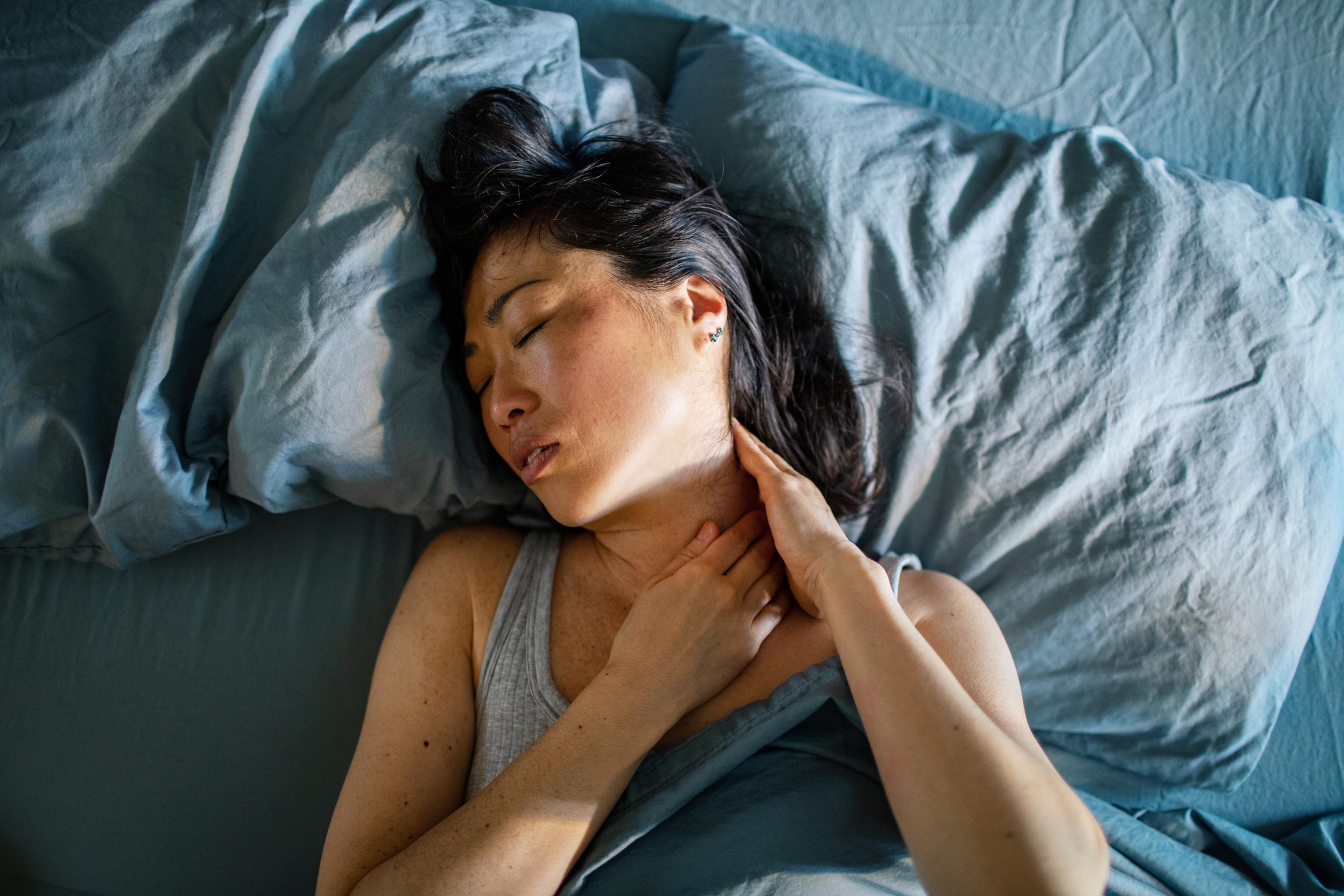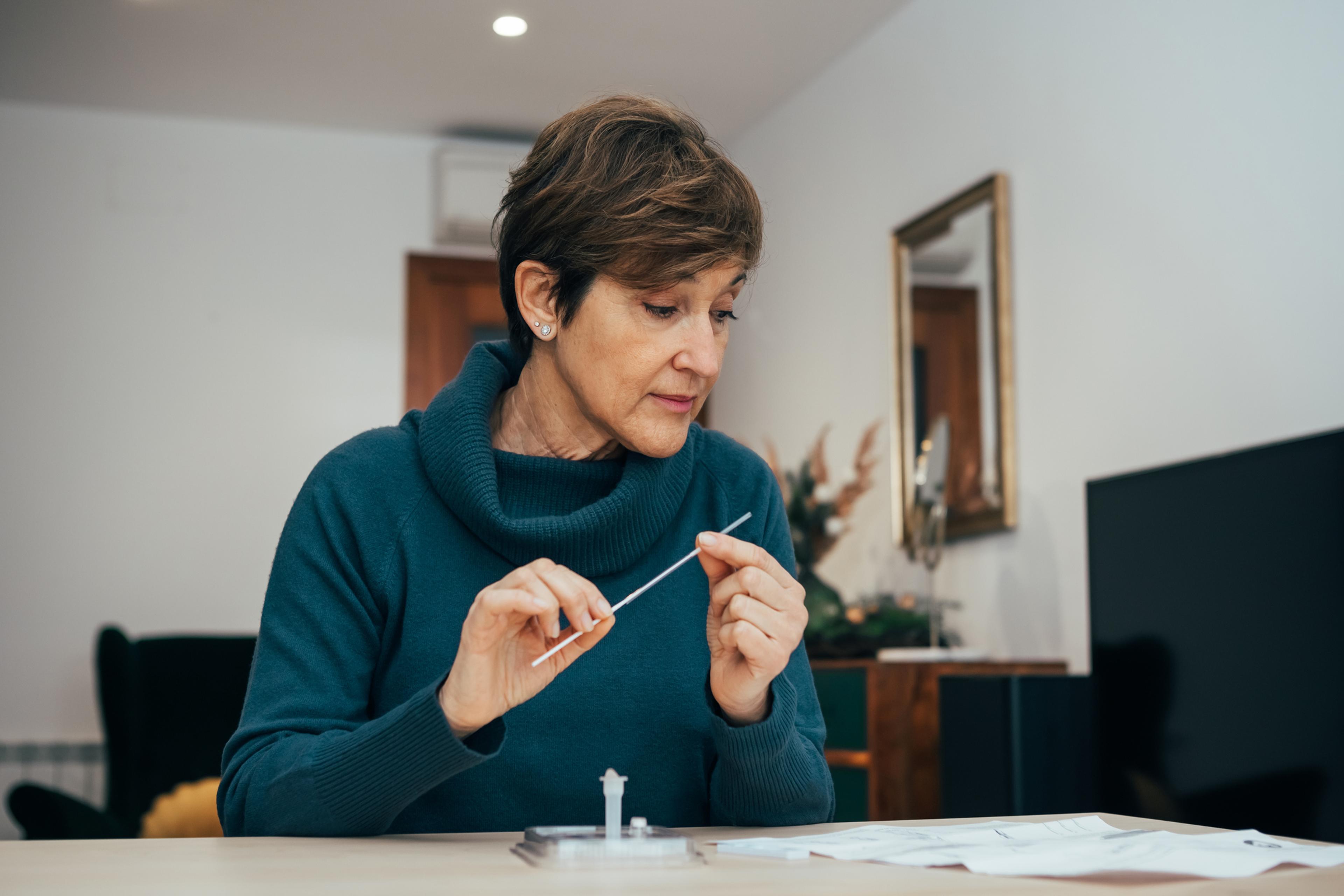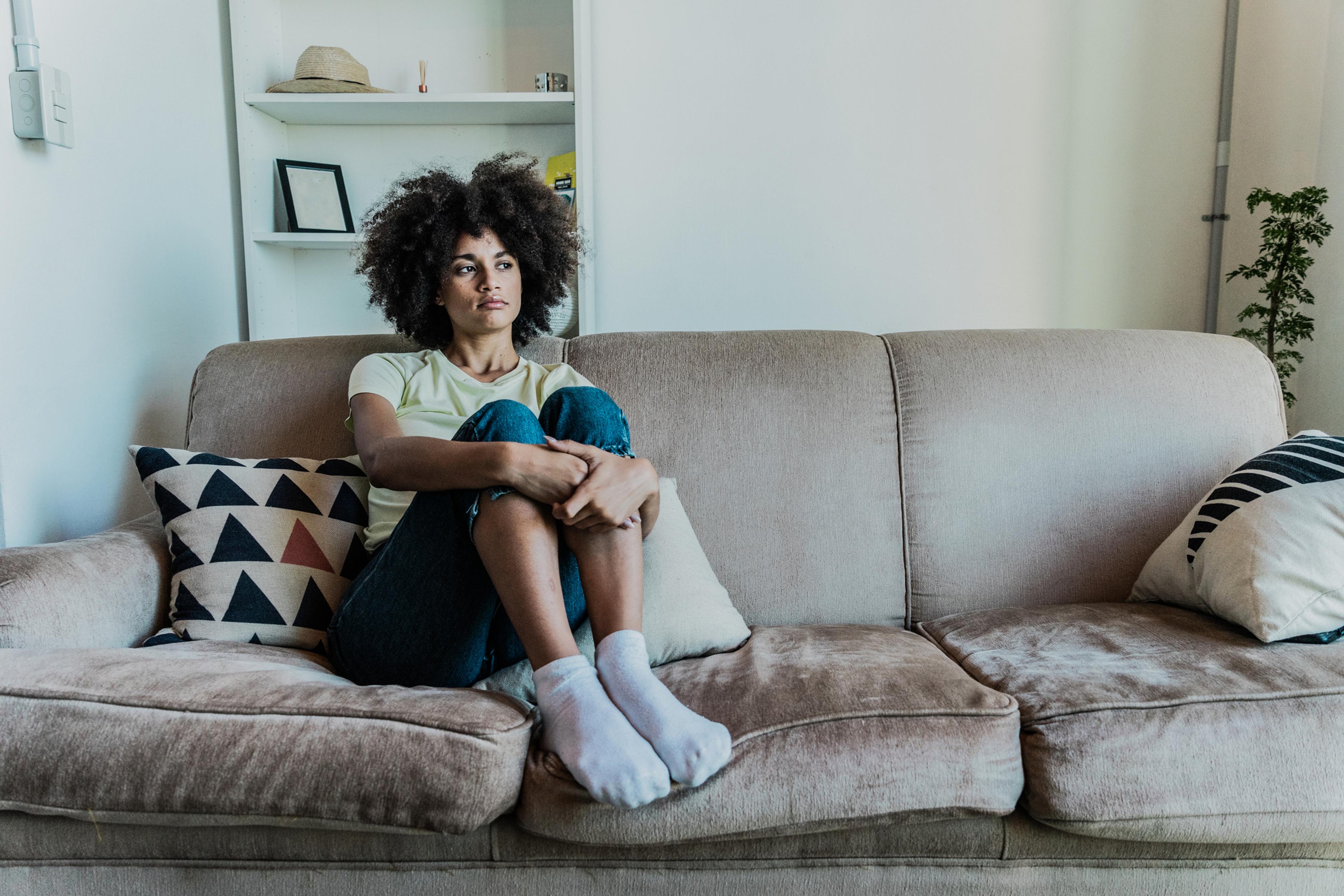Sleep Series: Should I Be Using a Pillow?
Jake Newby
| 3 min read

Pillows are such an essential part of our sleep routine that it’s hard to imagine sleeping without one. But in certain situations and for certain people pillows seem to cause more harm than good. Consistently waking up with neck and back pain may cause you to want to experiment without one.
A growing number of sleepers are ditching their pillows, but there’s a reason we’ve used them for centuries. Here are the pros and cons of sleeping without a pillow.
Why do we sleep with a pillow?
The main reason most of us sleep with a pillow is because it promotes proper alignment between the neck and backbone. Pillows are designed to minimize stress on the neck and back by supporting the head, alleviating pressure in the cervical area and straightening out the spine. According to the Cleveland Clinic, the rule of thumb for a proper pillow is that it should keep your neck parallel to the mattress, rather than bent down or up.
However, sleeping with just any pillow doesn’t ensure a pain-free sleep experience. Pillows that are too soft or too firm can cause neck pain. If you want to continue sleeping with a pillow but not the one you have currently, it’s important to research the pillow that best fits your sleep position and needs.
Is it better to sleep without a pillow?
Though pillows are designed to promote neck and spinal alignment, some people may find them to do the opposite. Stomach sleepers may find it more comfortable to sleep without a pillow. Sleeping face down causes you to turn your head to either side during the night, putting stress on the neck. Sleeping this way on a pillow can place the neck at a sharp, uncomfortable angle, which can also compromise posture. When stomach sleepers remove the pillow, their spine rests in a more neutral position, and they may experience less stress in their neck.
Back and side sleepers risk stiffness in their lumbar or cervical spine by sleeping without a pillow. Sleeping chin-to-chest as a back sleeper can overextend the muscles in the neck and lead to discomfort, neck pain and bad posture. Stomach sleepers may wake up with neck and back pain relief due to the flat surface provided by their mattress.
Some people are experimenting without a pillow because of the perceived skin issues they cause. A 2016 study on facial aging and facial distortion during sleep suggests there is a link between pillows and wrinkle formation. Some skin experts claim that sleeping without a pillow can prevent wrinkles, stating that planting your face into a pillow for hours on end inflicts friction on the skin. More research is needed to support these claims.
Additionally, some say sleeping into a pillow obstructs the follicles in the skin and leads to clogged pores and an increased chance of acne breakouts. More clinical research is needed to support these claims, as well.
It may be wise to talk to your primary care provider (PCP) about your decision to sleep without a pillow, especially if you have a history of neck or back pain. Remember to also evaluate your mattress before deciding to sleep without a pillow; a mattress that sinks, is too worn or is too soft or too firm for your body may be at the root of your problem.
Photo credit: Getty Images





